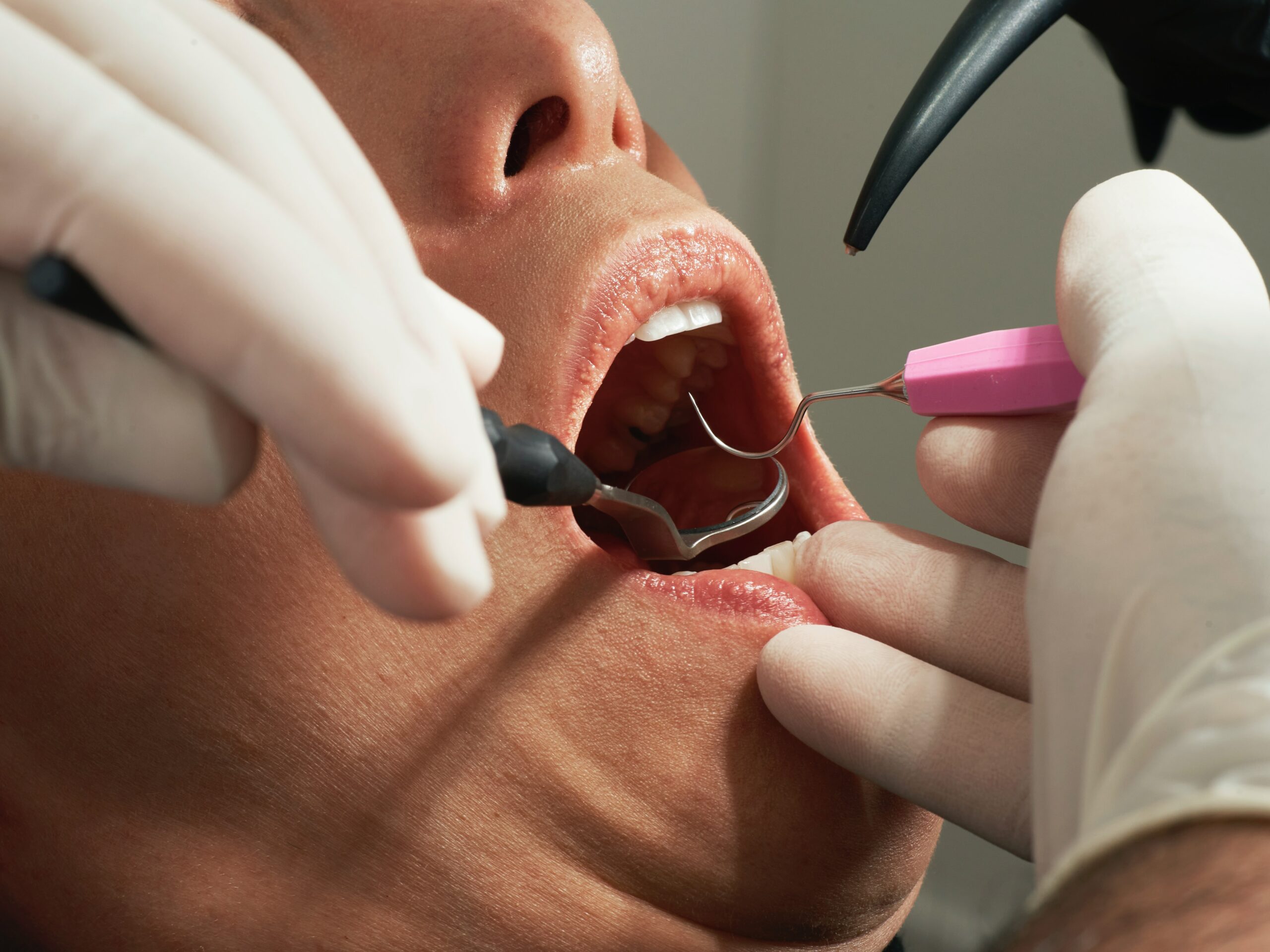
Sensitive teeth are unbearable for everyone who has ever had one. You may appear to others as though you are moaning about nothing. When the cold sensitivity and agony subside, it will be tough to ignore, but you will be unable to. This can happen if a portion of food, such as ice cream, hits your teeth in the wrong way when you're eating it. Your teeth may be overly sensitive if this occurs regularly. If your teeth are sensitive to cold, they may also be sensitive to heat. Shockingly cold air and boiling hot liquids can cause a person's teeth to swell. In the meantime, what can you do to improve your dental health? The first step is to figure out why you're troubled by your teeth. Your next step will be to choose which solution is most appropriate for your particular set of circumstances. Keep in mind that if you suffer from sensitive teeth, there is always a reason for the discomfort. True, the "cause" of the discomfort may be immediately "caused" by cold drinks or acidic foods. It's true that your oral health might use some improvement. In most cases, if you seek treatment as soon as possible, you can avoid further damage to your teeth. The source of your teeth's sensitivity dictates the type of dental treatment you need. You must first evaluate if you have sensitive teeth due to their sensitivity. It's a term used by people who have experienced "shooting or acute aches" after drinking cold liquids or hot coffee because their teeth are sensitive. If you want to thoroughly clean your teeth and gums, don't stop there. There are times when the pain intensifies to the point where it feels like a blade has been stabbed right through your head. The term "brain freeze" was coined here. Overall, it's not pleasant. This can happen if a tooth that is sensitive to cold or heat is exposed to it. Excessively hot or cold temperatures can cause excruciating dental pain. So, in order to get out of the pain, you must first grasp what is happening. The enamel on your teeth is likely to have worn away over time. Enamel is the outer layer of a tooth's structure. The nerve endings are protected by it. Tooth decay, receding gums, and other oral health issues can damage the dentin that makes up the enamel over time. On healthy teeth, you'll find this type of coating. As the dentin goes away first, then the enamel, so as you lose the enamel, you lose teeth. You'll notice an increase in the sensitivity of your teeth to heat and cold. There are several canals in the dentin, which is how it gets its name. The tooth's nerves and cells receive heat and cold through these tiny channels. When dentin is lost, it weakens the teeth, making them more susceptible to sensitivity. What is causing the dentin loss, first and foremost? Tooth sensitivity can be caused by a wide range of conditions, including: Sensitive teeth can be caused by a variety of factors, the most common of which are listed above. In addition to causing sensitive dentin, gum disease, and tooth enamel loss, smoking or not brushing your teeth properly can cause these issues. You might begin by doing activities at home to see if they improve your mood. As a first step, get yourself a soft-bristled brush. You should get one if you don't already have one. If you want whiter teeth, stop using whitening toothpaste and mouthwashes that contain alcohol. Too much abrasiveness might induce toothaches. If these alterations don't work, search for evidence that you are grinding your teeth while sleeping. Both the teeth and the jaw are at risk as a result of this habit. It's possible that a headache, neck ache, or shoulder pain will develop out of nowhere. If you suspect you are grinding your teeth, see a dentist as soon as possible. Stress may be to blame, or you may need medical attention if you can't get to sleep comfortably. In order to keep your teeth safe, the dentist's office can assist you by providing you with mouth guards that shield your teeth from harm. If your tooth grinding, or bruxism, is a problem, your doctor can help you devise a treatment plan. If you can't figure out why you clench and grind your teeth while you sleep, it could be dangerous. If you have a problem with a sensitive tooth, the type of dental work you need will be determined by the cause and severity of the condition. Precautionary steps are the first thing to do. You can avoid future damage to your teeth and gums by working with your dentist to improve your oral hygiene. Avoiding foods and beverages that are high in acid and sugar is the first step in preventing tooth decay. Desensitizing toothpaste can be used if that doesn't help. You can also brush your teeth frequently, floss, and use mouthwash. If your gums continue to recede or if you are still sensitive to cold and heat, there are a few things you may do. Then it's time to move on to the next step. The enamel acts as a barrier between your teeth's nerve ends and your roots, preventing them from causing pain. Using fluoride gels can help prevent sensitivity in the first place. You can strengthen your teeth by taking this product on a daily basis. Additionally, it aids in the restoration of your teeth's protective layer. Using specialist equipment, this can be done at work or at home during business hours. A sealant can be applied to your teeth if you have a cavity to lessen their sensitivity to hot and cold food. If your gums have receded as a result of gum disease, your teeth are sensitive to cold, or your dental roots are visible, you may need root canal therapy. An infection in the pulp of your teeth can be removed with this procedure. A dental crown will be affixed to the tooth once the gums and teeth have been thoroughly cleaned. This will hide the visible roots of the tooth. To avoid receding gums and rotting teeth, you should see a dentist when your teeth are sensitive. Learn how we can help you achieve or maintain good oral health by contacting our office right away.Tooth Sensitivity and You
Teeth Sensitivity: The Causes
The Most Common Causes of Sensitive Teeth
How to Manage Sensitivity to the Teeth
Treatment for Bruxism
Basic Treatments for a Sensitive Tooth
Enamel Reinforcement
Getting A Root Canal
Do You Know What Triggered The Sensitivity In Your Teeth? We're Here To Help.
 Schedule Your Visit
Schedule Your VisitHave Any Questions?
Call Us Today at: (203) 404-7006